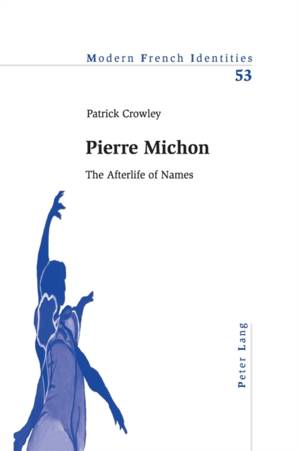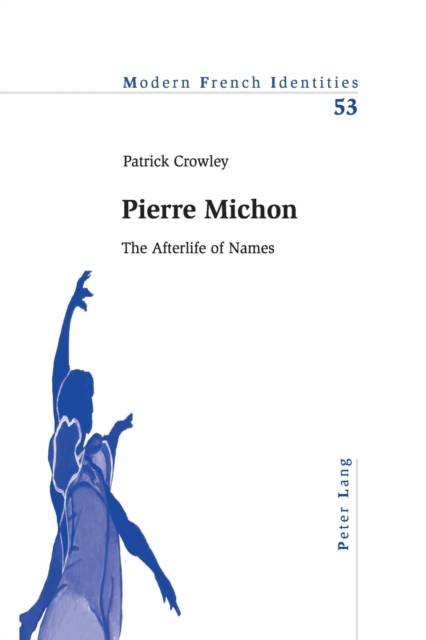
- Afhalen na 1 uur in een winkel met voorraad
- Gratis thuislevering in België vanaf € 30
- Ruim aanbod met 7 miljoen producten
- Afhalen na 1 uur in een winkel met voorraad
- Gratis thuislevering in België vanaf € 30
- Ruim aanbod met 7 miljoen producten
Zoeken
Omschrijving
Pierre Michon is one of France's most significant contemporary writers. Since the publication in 1984 of his first book, Vies minuscules, Michon's work has never ceased to evade generic classifications. His work ingests books, lives and thought and probes their complex interrelationship and those moments of convergence that transform an ordinary name into that of an 'Author' or of an 'Artist'. The contents of Michon's work are well documented: they are drawn from canonical novels, chronicles, archives and the biographies of artists' lives and are worked into cross-generic forms that revive names and make us rethink the uncertainty of literature. Less has been written of his engagement with avant-garde thought. The legacy of French avant-garde thinkers of the 1960s and 1970s, in particular the work of Roland Barthes, informs Michon's work. Barthes's notions of the referent, of intertextuality and of authorship, for example, are transposed, reconfigured and sometimes contested within Michon's work. In this way, Barthes's name, the afterlife of his thought, remains encrypted within Michon's prose. This book situates and reads Michon's texts through the complex inscription and transformation of names drawn from the Creuse, literature, art and avant-garde thought. And it is within this matrix that Michon puts in play his own name and its uncertain relation to literature.
Specificaties
Betrokkenen
- Auteur(s):
- Uitgeverij:
Inhoud
- Aantal bladzijden:
- 248
- Taal:
- Engels
- Reeks:
- Reeksnummer:
- nr. 53
Eigenschappen
- Productcode (EAN):
- 9783039107445
- Verschijningsdatum:
- 15/11/2007
- Uitvoering:
- Paperback
- Formaat:
- Trade paperback (VS)
- Afmetingen:
- 152 mm x 229 mm
- Gewicht:
- 335 g

Alleen bij Standaard Boekhandel
+ 154 punten op je klantenkaart van Standaard Boekhandel
Beoordelingen
We publiceren alleen reviews die voldoen aan de voorwaarden voor reviews. Bekijk onze voorwaarden voor reviews.











